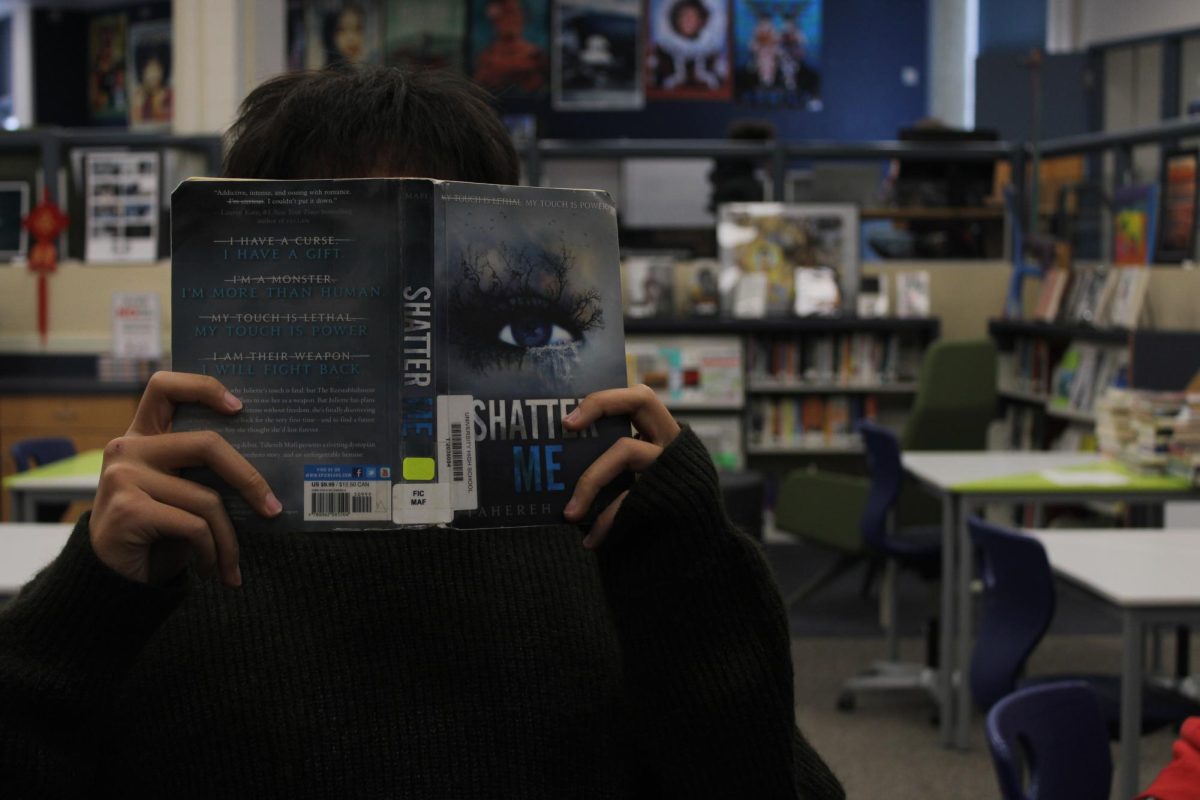“Romeo and Juliet are just two horny teenagers who kill themselves because they couldn’t have sex with each other.” This idea is not uncommon (in fact, it is extremely popular) among people who have read the famous Shakespeare tragedy Romeo and Juliet. I thought so as well until I saw the scene of Juliet’s suicide played out in the movie: a young girl with a tear-stained face, steely eyes and fingers wrapped white around a dagger as it makes its way into her chest. She hardly even cries out. And when you have seen that scene, when you have watched her desperately clinging to Romeo’s frame, somehow, the idea of “horny teenagers” just does not match up.

st
I do not believe that Romeo and Juliet merely lust after one another. The popularity of this belief can be partly attributed to the difficulty of understanding Shakespeare’s words themselves. Reading the parts where Romeo and Juliet converse with each other secretly at night, one does not truly understand the weight and emotion of their conversations. Even modern translations butcher the feeling with which they speak. It is hard to take Romeo and Juliet seriously when SparkNotes tells us that Romeo says, “Your hand is like a holy place that my hand is unworthy to visit” (SparkNotes, No Fear Shakespeare). It’s silly. It’s laughable. But think about the time period that they were in, more than 400 years before today. The original version is, “If I profane with my unworthiest hand/ This holy shrine.” The immediate eloquence and sincerity of his sentence can still be detected, no matter how strange his syntax and wording. Romeo sees Juliet as angelic. He is in complete awe of her beauty. We do not understand because we are 21
century Americans; we simply have no idea how meaningful his message may have been almost half a millennium ago.
are.Another reason why many believe Romeo and Juliet are never in love is because the two teenagers fall in love after they “literally just met.” And that point is completely valid–how can you be fully in love with someone you have only known for one day? The truth is, I have no answer explaining why they are in love except for the fact that they just
This is a Shakespearean play, to be performed in one sitting save for a few intermissions. So how could there have been time for Romeo and Juliet’s teen romance to unravel and develop when the true weight of the story lies in their unfortunate but irrevocable deaths? Why would Shakespeare explain their love when its importance is not in its cause but in its consequences?
For me, the 1968 film was the most important factor in persuading me that they are in love, not lust. I simply cannot imagine a young teenage girl drinking a vial of temporary poison for the sake of a boy she is merely lusting after. In the film, you can see the hesitation and fear with which Juliet handles the drink that will put her in a temporary coma (a coma that will be her gateway to meeting Romeo again). Clutching the vial, she closes her eyes and whispers with conviction, “Love give me strength,” and drinks the potion without further hesitation. That scene, to me, was truly powerful. You see a girl looking in almost fearful reverence at a drink that could possibly kill her. She is afraid, and her love for Romeo does not take away that fear. However, it gives her the strength she needs to act on it. I seriously doubt that Juliet thinks about undressing Romeo while she is jeopardizing her life.
But it could just be the mastery of the movie. It could just be the haunting refrain that plays quietly during the silent scenes. It could just be how attractive the actors are. But the movie conveyed what the play could not: images and emotions viewers could see and understand. There is a huge difference between relying on one’s imagination and actually seeing the adoration, anguish and tears. And although Shakespeare had no way of communicating such powerful images to us, he did write them.
Romeo and Julietis a tale of “two star-crossed lovers.” “Star-crossed” is important here: it emphasizes the power that fate has over Romeo and Juliet and the fact that they were doomed to meet but never be together. Their love is dubbed as “star-crossed,” meaning that the stars never meant for them to stay with each other. And for them to have a love destined to fail, they must truly have been in love.
Written by STACEY YUStaff Writer








